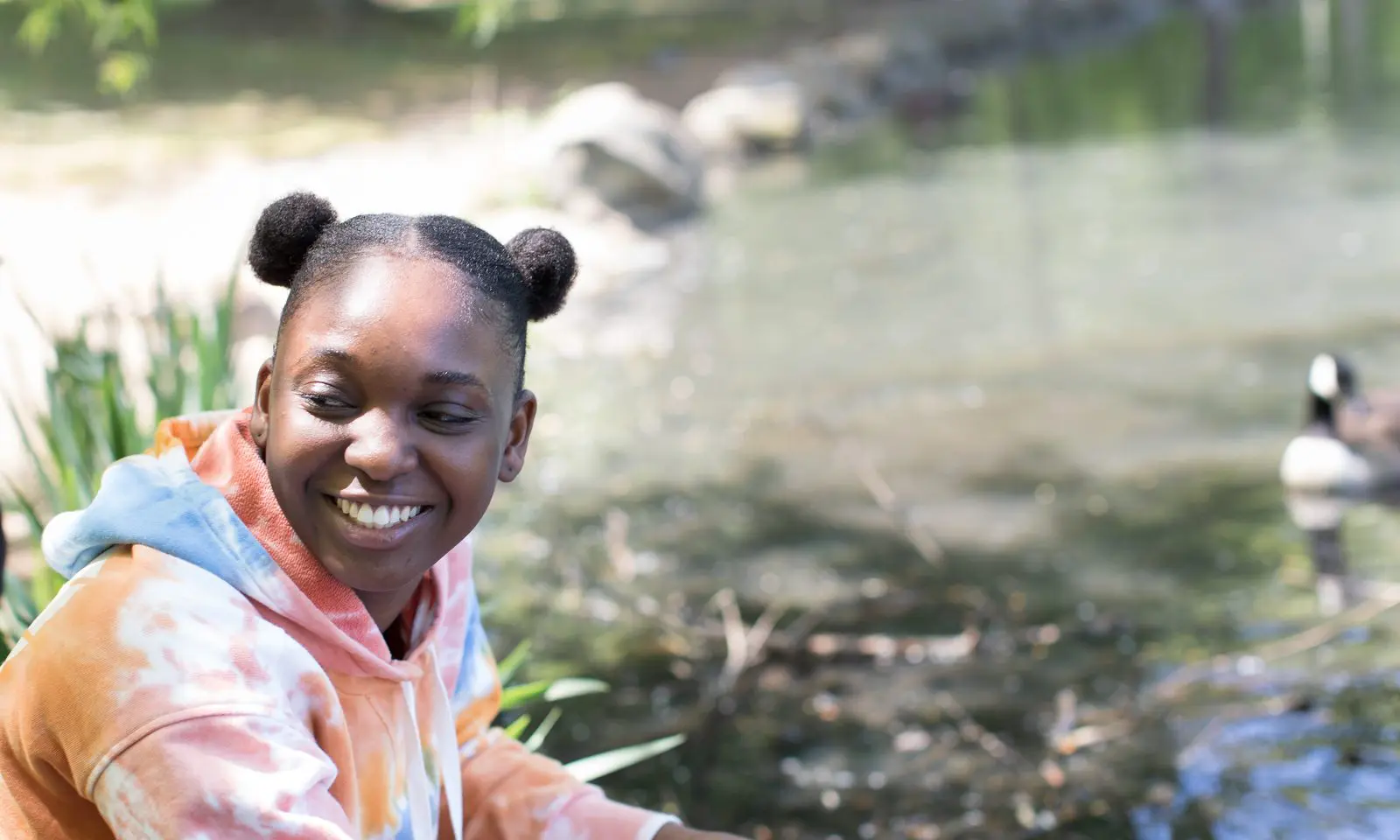When a child or young person you know has experienced the death of someone close to them, it can be difficult to know what to say. It’s natural to want to comfort them, but sometimes common condolences can actually be upsetting or hurtful. So, we’ve created a list of dos and don’ts to give you some ideas of what to say to a grieving child or young person.
It’s important to say that this list is just a guide. Everyone reacts differently to the death of someone. Grief can bring on all sorts of feelings and emotions that can feel really big in some cases, and there is no order or particular way someone will feel as grief is incredibly individual. Be kind in what you say, show that you care by offering to do something for them – even if that’s just showing up on a phone call or in person and try not to discount their feelings. Your words and actions can mean a lot to a child or young person when they are grieving and go a long way in making them feel fully supported.
Here’s our list of some dos and don’ts of what to say to a grieving child or young person.
What NOT to say to a grieving young person:
- I know exactly how you feel
- You’ll get through it, just be strong
- There’s a reason for everything, life goes on
- At least…
- Stop feeling that way, feel this way
- It’s been a while since they died, aren’t you over them yet?
- They’re in a better place
- It must have been their time to go
- Oh well, it’s a part of life
- Just give it time, it’ll get better/time heals
What to say to a grieving young person:
- I’m so sorry to hear about your [name of the person who died]
- I don’t know how you feel, but I’m happy for you to tell me if you’d like
- I don’t know what to say but I’m here to listen
- Do you want to talk about your special person?
- Why don’t I call you and/or come round tomorrow?
- I’m going to the shops, can I get you anything?
- What was their favourite song/TV programme/meal?
- I remember when… (Talk about a happy memory you have of their person or something they have told you about them)
- I know today is their birthday/anniversary/special day and I’m thinking of you and/or perhaps you’d like some help in planning to do something to remember your special person?
- Have you heard about/did you watch…(general chat)
Why are these good things to say to someone who is grieving?
You are acknowledging their grief and naming the person who has died, whereas sometimes people try to avoid talking about it whether because they feel uncomfortable or are worried about upsetting them. So, giving the grieving child or young person the opportunity to talk about their special person if they want to and also sharing your own memories can go a long way in helping them feel supported through what may be a really difficult time. There will also be times where they want to talk about other things, so it’s considerate to give them that opportunity too. You could also suggest that you complete some of our activities together when you meet up to support them in grief, please see our link ‘Activities for grieving children.’
By asking how they feel you are recognising that everyone grieves differently and letting them tell you how they feel rather than making assumptions. If you don’t know what to say, then it’s okay to say just that!
Sometimes it can be difficult to ask for help, they might feel like they are imposing on you. Rather than a general ‘let me know if there’s anything I can do to help’ or ‘just call if you need me’, try making specific offers of ways you can help. Make an arrangement to see or speak to them, ‘shall I call you tomorrow to check on how you’re doing?’, or ‘I’ll pop in tomorrow on my way to the shops and if it’s ok, we can have a chat then.’
Support for grieving young people
Our bereavement support workers are available to offer information, guidance and support, right away. Reach out on 08088 020 021 or use our live chat (click the blue ‘chat’ button on the bottom right of your screen) between 8am and 8pm, Monday to Friday. You can also email us on ask@winstonswish.org and we’ll get back to you within two working days.
For out of hours mental health support, text WW to 85258 to speak with someone from our trusted partner, Shout. For urgent support in a crisis, please call 999.

You may also like

Activities for grieving children
Download our free activities to help grieving children express their feelings and remember someone who has died.

Information and advice
Advice and resources to support children and young people, including on bereavement by suicide, homicide and serious illness.


